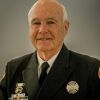Firefighter suicides is certainly not a new phenomenon; in fact, I’ve had several friends and a close relative – all of whom were fighters – who died by suicide. The reasons were different, but all had a lasting effect on me.
My first experience with suicide was while I was still in elementary school. My great uncle, a well-respected fire captain, had reached the mandatory retirement age for his department after serving as a career firefighter for nearly 40 years. He had given me my first ride on a fire engine, followed by several more rides, as his engine company also covered our family’s neighborhood.
On the eve of his retirement party, my great uncle killed himself. It was thought that he felt he couldn’t live without being a part of his beloved department. I remember my mother coming into the bedroom where I slept and telling me the news. I was stunned but didn’t exactly know how to react. I remember thinking the worst was that I’d never see him again, nor share the joy of riding with him and ringing the bell on his fire truck.
The other three deaths all occurred during my fire service career. The first occurred after a good friend, who was a mentor of mine and the chief of a neighboring department, was diagnosed with terminal cancer. Two others were firefighters who had witnessed traumatic incidents. One had been a classmate of mine back in our recruit class and had subsequently entered the U.S. Marines as a Crash Fire Rescue firefighter. He died overseas by suicide, and I never heard exactly what kind of trauma he had witnessed, as word of his death took several months to reach me.
The final death, and the most recent, involved a young firefighter-EMT on our department who had just entered the fire service a few months earlier. While it can’t be confirmed, we believe his death was related in part to a traumatic single car incident we responded to a few weeks before.
While counselors were made available to debrief the crews, it was not known if the firefighter-EMT actively participated in these counseling sessions. His tragic death convinced me it was time to help tackle the elephant in the room.
Making help available
The value of counselors, both professional and peer-team counselors, can’t be emphasized enough. Being able to share related experiences and draw upon some communal strengths can help remind us all that it is OK to have feelings of grief or remorse; in fact, it is a natural occurrence after experiencing a traumatic event.
I also believe that a department chaplain, who is trained and experienced in such counseling, is an added benefit for crews. Many times, a firefighter may question how God could allow such tragic events to happen. The added spiritual training of a chaplain can help transcend both the spiritual and psychological effects of a traumatic incident.
How showing up as a leader can make a difference
Following the death of the young firefighter-EMT, I reminded myself of a conversation I once had at the National Fire Academy with Darrell Higuchi, who at the time was serving as deputy chief of operations for the Los Angeles County Fire Department. We discussed several topics, but one that stuck with me was his determination to visit every LACoFD station on every shift day, to get a feel for the issues of concern to his firefighters. This was to be a multi-year effort, but one he was determined to complete.
With 177 stations and approximately 4,900 firefighters in the LACoFD, it may not be feasible for a fire chief to set that as even a multi-year goal, but I’m sure that somehow Darrell managed to live up to his plan and get to each of them over time.
Now, let me issue this as a challenge to all chiefs – battalion, deputy, assistant or the chief of the department. Let’s pledge to visit all our stations in 2024 and spend some quality time with firefighters and company officers. Perhaps make it a “Coffee with the Chief,” but we bring the donuts or sweet rolls.
I will make time every month to stop in and visit at least two of our stations, and I will encourage others on staff to do the same. Getting back to basics and listening to our firefighters may not solve all our problems, but it will give crews the opportunity to be heard and hear our response firsthand (and a Zoom call doesn’t count!).
Make time for your people, chief
My thoughts following the death of our young firefighter reminded me of another conversation I had a few years ago at Fire-Rescue International. A firefighter from a large department in Texas recognized me walking near the apparatus displays and stopped me to take issue with an article I had recently written.
I asked him if he had time to sit down with me to discuss the pros and cons of his concerns and spent the better part of an hour just bouncing ideas off one another. At the end, as we parted company, he turned to me and said, “You’re the first chief to sit and talk with me in my entire fire service career, thank you.” I was flabbergasted at his comment, and it stuck.
Don’t be the chief who doesn’t have time for your people. I know the higher we go in rank, the more our time is needed for administrative duties, but what makes or breaks our departments are our people. Make time for them, no matter how hard it might be; it may be one of the keys that results in not losing one of them to suicide.
Stay safe!












